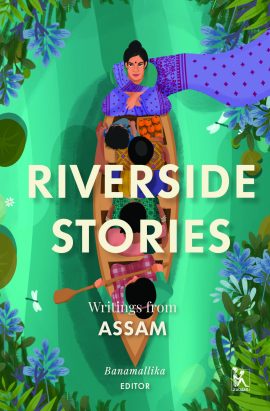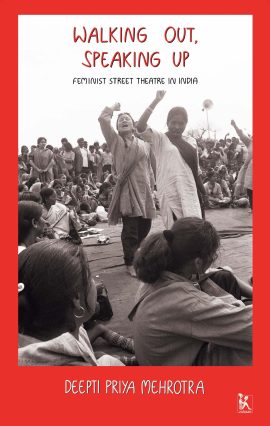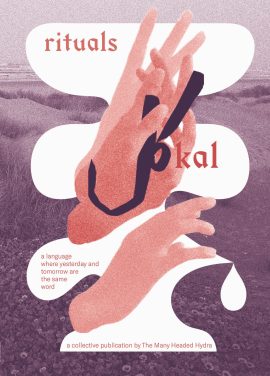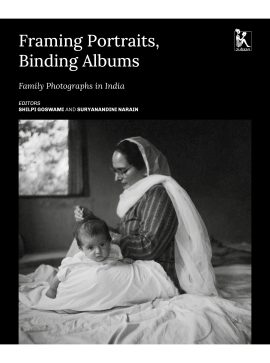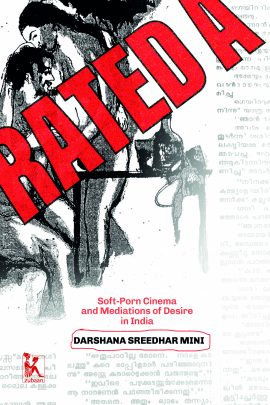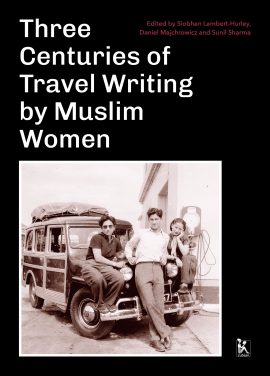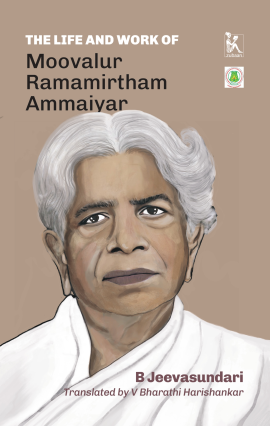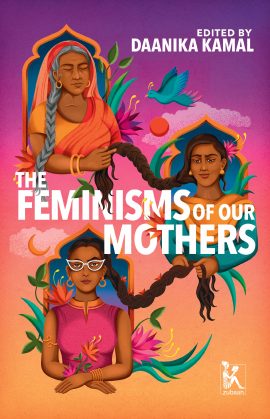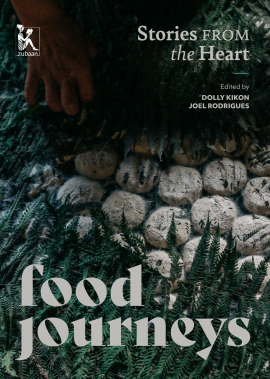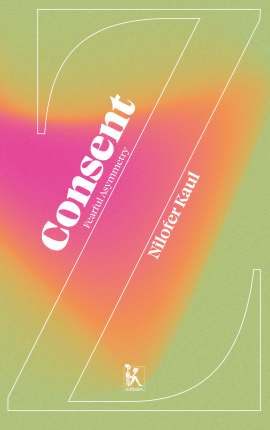No products in the cart.
Return To Shop
Log in / Sign in
Login
Register
Filter by price
Books, Books from the North East, Books from the North East, e-Books, New Releases, New Releases, Non-Fiction, Non-Fiction
Riverside Stories: Writings from Assam
Rated 5.00 out of 5
₹ 480 – ₹ 595Price range: ₹ 480 through ₹ 595Stories abound in Assam’s fields, ponds, rivers, forests, hills and cities. Most of its people wear each other’s clothes, eat each other’s food and speak each other’s languages. Diversity and amalgamation are the primarily identifiable elements of people from Assam. Yet, everyday patriarchy and politics of boundaries have resulted in so much confusion and conflict. Thankfully, we are witnessing emerging voices of people who experience life differently because of their own identities and locations and propose an inclusive space for us all. The women and transpeople who have contributed to Riverside Stories come from this diversity and bring their stories of multiple experiences from Assam to the world. This collection of fiction, non-fiction, poetry and visual stories, puts on record the experiences of the self, the very personal, within homes, in the environment, with politics, and with disappointments, desires, hopes and memories for a future. In putting together this anthology, it is our hope that we have complicated—more than it already is—the notion of whose and which stories can be told.
______________________________________________________________________________________BANAMALLIKA is mostly a disheartened feminist activist from Assam. She has used storytelling as a tool for questioning power in her personal life and professional work. To her ever-expanding array of activities, she has added drawing, filmmaking, entrepreneurship, gardening, theatre, cooking, research, writing and, very recently, playing with clay. She draws her sustenance from the feminist movement and its solidarity. She is currently fantasising about not having to write another proposal or project report and living on a farm on a foothill by a spring.
Walking Out, Speaking Up: Feminist Street Theatre in India
₹ 560 – ₹ 795Price range: ₹ 560 through ₹ 795
An energetic era of feminist street theatre in India: 1979 onwards. Stunning, audacious plays vividly portray abuse, murder and everyday sexism, raise profound questions, disrupting the normative. Public performance embodies resistance, shattering the mould of docile, invisible women. Rhythms of tambourines, drums, songs fill the air, stories are enacted, insights communicated, challenging entrenched patriarchies, evoking audience response, sparking change.A remarkable repertoire of plays unfolded across geographical and social contexts: Om Swaha, Ehsaas, Mulgi Zali Ho, Intezaar, Teri Meri Kahani, Hum Awaz Uthayeinge and hundreds more. Weaving social critique with intimate felt experience, they exposed dowry killings, sati, bigotry, sexual violence, overwork, discrimination and exploitation within families, workplaces, society and state—and showed rebellion brewing. This was a theatre of rage, pain, protest, in sync with the autonomous women’s movement of the time.Perceptive, outspoken women emerged out of a morass of ascribed roles to carve their own identities, remake the world. Protagonists broke many silences, told precious stories, offered alternative imaginaries. Fiction merged with documentary, searing content with rich aesthetics. Pithy dialogues articulated complex ideas in familiar idioms, heralding increasingly nuanced discourse around gender, citizenship and dissent, influencing media, academia, law and policy.Incorporating oral histories, auto-ethnography, scripts, visuals, archival material, meticulous research and multi-layered analysis, Deepti Priya Mehrotra’s carefully crafted study is an invaluable resource for understanding feminist street theatre, oppositional politics and counter-cultures in modern India.______________________________________________________________________________________Deepti Priya Mehrotra is a political scientist with trans-disciplinary interests. She has engaged with street theatre and the women’s movement since the late 1970s. Writing in English and Hindi, her books include Gulab Bai: the Queen of Nautanki Theatre, Home Truths: Stories of Single Mothers, Burning Bright: Irom Sharmila and the Struggle for Peace in Manipur, Her Stories: Thinkers, Workers, Rebels, Queens, Bharatiya Mahila Andolan: Kal Aaj aur Kal and Jaggi Devi: Svatantrata ki Raah Par. Deepti has taught political science, sociology, gender studies and media studies, variously at Delhi University, TISS-Mumbai, Dayalbagh Educational Institute, Agra, Ambedkar University, Delhi and the Institute of Mass Communication, Delhi. Currently, she is working on a photo archive of the autonomous women’s movement, teaching a course in educational philosophy, and collaborating with social organisations in activist, research and advisory roles. In her dissentful heart, she continues to dream of acting and singing, loudly in order to shatter the sorry scheme of things and remould it nearer to the heart’s desire.
Select format
This product has multiple variants. The options may be chosen on the product page Women Writing History: Three Generations
₹ 420 – ₹ 595Price range: ₹ 420 through ₹ 595Three historians. Three generations. Spanning nearly a century of work, Romila Thapar, Kumkum Roy and Preeti Gulati, reflect on their lives and their engagement with one of the most demanding, and most crucial, disciplines of our times. Personal narratives of growing up—learning about history, charting new and distinct paths as researchers, the challenges of teaching—meld effortlessly into a larger and complex changing context: the emergence of an independent nation, of movements that have helped shape the process, and of resistance. To what extent, the authors ask, have feminisms made a difference? Can these interventions lead to redefining or rejuvenating the discipline, transforming it into a more inclusive space where diverse voices can be acknowledged and heard with respect and understanding? These and other questions inform this accessible and lucid text.
______________________________________________________________________________________ROMILA THAPAR is Professor Emerita, Ancient History, at Jawaharlal Nehru University, New Delhi. Her special contribution to history is the use of social-historical methods to understand change in the mid-first millennium BCE in northern India. Among her many publications are Asoka and the Decline of the Mauryas (1961), From Lineage to State (1984), and Early India: From Origins to AD 1300 (2002). She has been honoured with doctorates from the Universities of Chicago, Oxford, Edinburgh, Calcutta, Hyderabad, Pretoria, Brown University and the Institut National des Langues et Civilisations Orientales. She is an Honorary Fellow of the School of Oriental and African Studies in London from where she also received her PhD, and a Foreign Honorary Member of the American Academy of Arts and Sciences. In 2008, she shared the US Library of Congress’s Kluge Prize for lifetime achievement in the humanities and social sciences.
KUMKUM ROY did her PhD in Ancient Indian History from the Centre for Historical Studies, Jawaharlal Nehru University, New Delhi. She taught at Satyawati Co-educational College, Delhi University, and at the Centre for Historical Studies, Jawaharlal Nehru University. With a specialisation in ancient Indian history, her areas of interest include histories of political institutions and processes and issues of gender. Among her publications are The Emergence of Monarchy in North India (1994), A Historical Dictionary of Ancient India (2009) and The Power of Gender and the Gender of Power (2010). She is also interested in issues of pedagogy at various levels.
PREETI GULATI teaches History at Krea University. Her research interests lie in early Indian texts, everyday practices, and the history of institutions. She is currently working on a monograph on food and power in early India, which is based on her PhD thesis.
Kal Rituals
₹ 795The first in a series of publications emerging from the transoceanic platform kal, RITUALS proposes queer and trans-feminist ecologies, embodiments and mythmaking. The contributions trace and disrupt cross-colonial legacies through bodies of water lapping at the shorelines of the Arabian Sea, the Indian Ocean, and the Atlantic. kal RITUALS is an ode to transterritorial alliances that disrupt binary contours of time and being.
kal RITUALS assembles practices of queer world building in extended pandemic time, amidst deep ecological and social transformations, offering an expression of anti-colonial resistance and joy.
_____________________________________________________________________________________kal RITUALS is a collective work by The Many Headed Hydra. Connecting art, research and publishing, The Many Headed Hydra magazines engage bodies of water as ecological collectivities and tidal archives to set resistant knowledges into motion.
This publication emerges from a language where yesterday and tomorrow are the same word. kal., an self-organized artistic platform spanning Karachi, Colombo, Berlin and beyond.
Framing Portraits, Binding Albums: Family Photographs in India
₹ 875 – ₹ 1,250Price range: ₹ 875 through ₹ 1,250Long neglected in academic discourse in India, family photographs make a silent contribution to the histories of photography, marginality and the family. In this volume, the writers dwell on the importance of family photographs and their visual omnipresence in our daily lives.
They point out how family photographs have belonged to the ‘vernacular’ material of visual culture, more seen and lived with, less written and consciously thought about. Attempting to retrieve family photographs from a space of neglect, this volume demonstrates how they are fundamental to the microhistories of a nation and its many societies, and suggests the importance of such counterarguments to the dominant strains in an emerging discursive space.
The essays do not offer a comprehensive survey of all types of family photographs in India. Instead, they present focused insights into chosen areas of interest on the part of the writers. Collectively, they embrace the intersectionalities of gender, caste, class and regional trajectories, making the politics of representation even more layered with contestations between the historical, oral and affective memorialisation surrounding family archives and photographs. These concerns centrally inform the essays, as they accept and negotiate a terrain shared by all types of narrativisation.
______________________________________________________________________________________SHILPI GOSWAMI is an independent editor, researcher and curator with a PhD in Cultural Studies. She has been an archivist for the Alkazi Foundation for the Arts, a curator at the Kiran Nadar Museum of Art, programme manager for What About Art? for Qatar Museums, Artistic Director of Gallery Nature Morte. Shilpi has co-authored Mastering the Lens: Before and After Henri Cartier-Bresson in Pondicherry (2013), and has contributed to Allegory and Illusion: Early Portrait Photography from South Asia (2013), Unveiling India: The Early Lensmen, 1850-1910.
SURYANANDINI NARAIN is Assistant Professor in Visual Studies at the School of Arts and Aesthetics, Jawaharlal Nehru University, New Delhi. She teaches courses on Indian visual culture, photography, aesthetic theory and critical writing. She has written extensively on photography and visual culture in India, especially around themes of women, the family, the home, everyday aesthetics and studio photography.
Rated A: Soft-Porn Cinema and Mediations of Desire in India
₹ 490 – ₹ 695Price range: ₹ 490 through ₹ 695In the 1990s, India’s mediascape saw the efflorescence of edgy soft-porn films in the Malayalam-speaking state of Kerala. In Rated A, Darshana Sreedhar Mini examines the local and transnational influences that shaped Malayalam soft-porn cinema—such as vernacular pulp fiction, illustrated erotic tales, and American exploitation cinema—and maps the genre’s circulation among blue-collar workers of the Indian diaspora in the Middle East, where pirated versions circulate alongside low-budget Bangladeshi films and Pakistani mujra dance films as South Asian pornography. Through a mix of archival and ethnographic research, Mini also explores the soft-porn industry’s utilization of gendered labor and trust-based arrangements, as well as how actresses and production personnel who are marked by their involvement with a taboo form negotiate their social lives. By locating the tense negotiations between sexuality, import policy, and censorship in contemporary India, this study offers a model for understanding film genres outside of screen space, emphasizing that they constitute not just industrial formations but entire fields of social relations and gendered imaginaries.
______________________________________________________________________________________A model for future film scholars. The decade-long research that went into making this book is evident in its rich historical details, insightful conversations, and multisited fieldwork. Perhaps even more impressive is Darshana Sreedhar Mini's ability to pull together such vast and diverse material in a riveting story, so absorbing and beautifully written that I often felt like I was reading a novel. This exemplary work will produce lively discussions about film historiography, diaspora, stardom, authorship, and sexuality.—Monika Mehta, author of Censorship and Sexuality in Bombay Cinema, 2011In Rated A: Soft-Porn Cinema and Mediations of Desire in India, Darshana Mini takes readers on a truly fascinating exploration of Malayalam soft-porn cinema that emerged in the 1980s and captivated millions of viewers across India and the Middle East. Extensive archival and ethnographic research reveals the local and global influences that shaped the genre, the social and gendered dynamics of the industry, and the complex politics of sexuality and censorship in contemporary India. By challenging the dominant narratives of pornography as a Western phenomenon, this book provides a new model for studying soft-core film genres in diverse cultural contexts.—Clarisa Smith, One for the Girls! The Pleasures and Practices of Reading Women’s Porn(2007), Co-editor Porn Studies JournalRated A is a fascinating cultural history of Malayalam soft porn cinema, and moreover of its afterlives - how it is remediated across a range of sites, reverberating in the cultural imagination. In the unfolding of that history, Darshana Mini shows how soft porn and the debates and desires that it provokes are entangled with the building of gender, sexuality, politics, and social life. A major new contribution to the study of pornographies.—Feona Attwood, author of Sex Media (2017) and Co-editor of Porn Studies Journal______________________________________________________________________________________DARSHANA SREEDHAR MINI is Assistant Professor of Film at the University of Wisconsin–Madison and co-editor of South Asian Pornographies: Vernacular Formations of the Permissible and the Obscene.
Three Centuries of Travel Writing by Muslim Women
₹ 1,400When thinking of intrepid travelers from past centuries, we don’t usually put Muslim women at the top of the list. And yet, the stunning firsthand accounts in this collection completely upend preconceived notions of who was exploring the world.
Editors Siobhan Lambert-Hurley, Daniel Majchrowicz, and Sunil Sharma recover, translate, annotate, and provide historical and cultural context for the 17th- to 20th century writings of Muslim women travelers in ten different languages. Queens and captives, pilgrims and provocateurs, these women are diverse. Their connection to Islam is wide-ranging as well, from the devout to those who distanced themselves from religion. What unites these adventurers is a concern for other women they encounter, their willingness to record their experiences, and the constant thoughts they cast homeward even as they traveled a world that was not always prepared to welcome them.
Perfect for readers interested in gender, Islam, travel writing, and global history, Three Centuries of Travel Writing by Muslim Women provides invaluable insight into how these daring women experienced the world—in their own voices.
______________________________________________________________________________________SIOBHAN LAMBERT-HURLEY is Professor of Global History at the University of Sheffield. She is author of Elusive Lives: Gender, Autobiography, and the Self in Muslim South Asia; (with Sunil Sharma) Atiya’s Journeys: A Muslim Woman from Colonial Bombay to Edwardian Britain; and Muslim Women, Reform and Princely Patronage: Nawab Sultan Jahan Begam of Bhopal. She is editor (with Anshu Malhotra) of Speaking of the Self: Gender, Performance, and Autobiography in South Asia and of A Princess’s Pilgrimage: Nawab Sikandar Begum’s A Pilgrimage to Mecca.DANIEL MAJCHROWICZ is Assistant Professor of South Asian Literature and Culture at Northwestern University. He is author of The World in Words: Travel Writing and the Global Imagination in Muslim South Asia and A Journey to Mecca and London: The Travels of an Indian Muslim Woman, 1909-1910.SUNIL SHARMA is Professor of Persianate and Comparative Literature at Boston University. He is author of Mughal Arcadia: Persian Literature in an Indian Court; Amir Khusraw: The Poet of Sultans and Sufis; Persian Poetry at the Indian Frontier: Mas’ud Sa’d Salman of Lahore, and (with Siobhan Lambert-Hurley) Atiya’s Journeys: A Muslim Woman from Colonial Bombay to Edwardian Britain. He is editor (with Roberta Micallef) of On the Wonders of Land and Sea: Persianate Travel Writing.
The Life and Work of Moovalur Ramamirtham Ammaiyar
₹ 345 – ₹ 595Price range: ₹ 345 through ₹ 595
Moovalur Ramamirtham Ammaiyar spent almost her entire life fighting against the devadasi system in Tamil Nadu, a practice that dedicated young girls to temples, where they were meant to be available for the sexual needs of priests and landowners. Sold off by her parents, and brought up to dedicate herself as a dasi, she managed to escape this fate and make a life for herself. Her battle against the devadasi system was met with considerable resistance, not only by those with vested interests in keeping the devadasis inside temples, but often by the devadasis themselves. But Moovalur persisted, taking her cause, and its wider ramifications into the broader politics of the Congress party, and later the Self-Respect Movement. Despite this, in the annals of recent Tamil history, she was hardly known, until the publication, in 2006 of Moovalur Ramamirtham: Vazhvum Paniyum (translated here as The Life and Work of Moovalur Ramamirtham Ammaiyar). Put together through interviews with her surviving relatives and fragments garnered from a handwritten manuscript, this is the first book to document the ‘braveheart’ of Dravidian history, Moovalur Ramamirtham Ammaiyar.
Select format
This product has multiple variants. The options may be chosen on the product page B JEEVASUNDARI is a feminist researcher, writer and media person. She has contributed to various Tamil magazines including Pikika Children’s Magazine, Police News, Puthiya Paarvai, Araam Thinai, Kumudham Snegithi and Penne Nee. Moovalur Ramamirtham: Vazhvum Paniyum (The Life and Work of Moovalur Ramamirtham Ammaiyar) is the result of her independent research. She has also edited a book entitled, Thaneer – Santhaikalla Makkalukke. Her articles on women’s independence and violence against women have been compiled into volumes entitled, Penn enum Pagadaikkai and Kurallatra Bommaigal. Her abiding interest in movies has resulted in a set of serialised essays, ‘Raisgai Paarvai’ which have been published in the film critics magazine called Kaatchi Pizhai. The collection was later published as a book and received an award for the best feminist book. She has also received the Chinna Kuthoosi Award for her essays, and has translated many children’s books into Tamil.
V BHARATHI HARISHANKAR is vice chancellor of Avinashilingam Institute for Home Science and Higher Education for Women. Previously, she was the founding Head of the Department of Women’s Studies, University of Madras. Her research interests include postcolonial literatures, literary theory, translation studies and web-based pedagogies. She has taught courses, guided research, and has written over 120 publications including research articles, books, edited volumes and textbooks in all these areas. She has co-authored three books on teaching translation. Her notable translations include Shanmugasundaram’s Nagammal and Thamizachi Thangapandian’s Birthing Hut and Other Stories. Her interest in Moovalur Ramamirtham Ammaiyar stems from the project on devadasis that she has worked on for the National Commission for Women.The Feminisms of Our Mothers
₹ 420 – ₹ 595Price range: ₹ 420 through ₹ 595‘Some of our mothers marched the streets in the 1980s, demanding the emancipation of women. Three decades later, they accompanied their daughters to Aurat March, reflecting on past formations, present collectives and feminist futures. Some made concessions in their acceptance of traditional gender roles, forming conflictual relationships with daughters that pushed the boundaries of propriety. Some may not refer to themselves as feminist, differing from their daughters about the significance and implications of labels. Yet, the subtleties of our mothers’ adaptabilities are centred on women’s empowerment. Situated amongst these subtleties are moments of consciousness and self-determination that we, as daughters, navigate through, as we limn the contours of our own feminist formations.’
In this remarkable collection of essays about their mothers, women from Pakistan explore the many meanings of feminism and its varying interpretations through generations. How, they ask, do these meanings change, mould, attract and detract within and between generations? How do women bridge the cracks that emerge in these formations as they hold within them the joys, sorrows, conflicts and contradictions of their multiple feminisms?
DAANIKA KAMAL is a researcher and writer from Karachi. She has worked across the development, legal and academic sectors, with a focus on gender-based violence, access to justice and rights protections of women and girls. She is currently based in London, where she is completing a PhD in Law. Daanika is an internationally published author and editor in the fields of gender empowerment, climate change, law, and mental health. The Feminisms of Our Mothers is her first anthological project.
Books, Books from the North East, Books from the North East, e-Books, New Releases, New Releases, Non-Fiction, Non-Fiction
Food Journeys: Stories from the Heart
₹ 895 – ₹ 1,500Price range: ₹ 895 through ₹ 1,500Food Journeys is a powerful collection that draws on personal experiences, and the meaning of grief, rage, solidarity, and life. Feminist anthropologist Dolly Kikon and peace researcher Joel Rodrigues present a wide-ranging set of stories and essays accompanied by recipes. They bring together poets, activists, artists, writers, and researchers who explore how food and eating allow us to find joy and strength while navigating a violent history of militarization in Northeast India. Food Journeys takes us to the tea plantations of Assam, the lofty mountains of Sikkim, the homes of a brewer and a baker in Nagaland, a chef’s journey from Meghalaya, a trip to the paddy fields in Bangladesh, and many more sites, to reveal why people from Northeast India intimately care about what they eat and consider food an integral part of their history, politics, and community. Deliciously feminist and bold, Food Journeys is both an invitation and a challenge to recognize gender and lived experiences as critical aspects of political life.
DOLLY KIKON is an anthropologist whose work focuses on the political economy of extractive resources, militarisation, migration, indigeneity, food cultures and human rights in India. She is the author of Life and Dignity: Women’s Testimonies of Sexual Violence in Dimapur (Nagaland) (2015); Living with Oil and Coal: Resource Politics and Militarisation in Northeast India (2019); Leaving the Land: Indigenous Migration and Affective Labour in India (2019); Ceasefire City: Militarism, Capitalism, and Urbanism in Dimapur (2021); and Seeds and Food Sovereignty: Eastern Himalayan Experiences (2023).JOEL RODRIGUES is the author of Seeds and Food Sovereignty: Eastern Himalayan Experiences (2023). Joel is a doctoral researcher at the Department of Social Anthropology, Stockholm University. His writings have been featured in Gastronomica, Morung Express, and ‘Raiot.in’. He has a bachelor's degree in mass media, and a master's in peace and conflict studies. His peace research work engages with law, violence, memory, food, and media. Born in Mumbai, Joel has lived in Northeast India for a decade now.
Consent: Fearful Asymmetry
₹ 195 – ₹ 275Price range: ₹ 195 through ₹ 275Especially after the #MeToo storm, ‘consent’ has been the rallying point of our debates. Nilofer Kaul looks at the idea of consent with all its assumptions of equality, rationality and language, and argues that this papers over the inherent asymmetry in gender relations. Harping on the centrality of consent, she argues, invisibilizes the violence of this asymmetric arrangement. The problem, as most women know, is not just that they are oppressed but that they apparently acquiesce to their indignities. It is in this heart of darkness that psychoanalysis is summoned to look at the inequitable distribution of power. Masculinity inherited power and this must be constantly proved and asserted, and constant violence is displayed to prove a delusional sense of power. This fictive potency demands the expunging of all traces of vulnerability, of the entire apparatus of thinking and feeling, and these unwanted attributes are then placed in femininity. However, Kaul argues, not all asymmetry is violent. BDSM partners ‘consent’ to violence, even seek it. How do we then think about consent in a world that is insistently and fearfully asymmetric?
NILOFER KAUL, PhD, is a Delhi-based training and supervising analyst. She has won the Frances Tustin Prize (2018), the Roszika Parker Prize (2021), as well as the IPA’s Elisabeth Young-Bruehl Prejudice Award and the Overall Psychoanalytic Research Exceptional Award (2025). She has published Plato’s Ghost: Minus Links and Liminality in Psychoanalytic Practice (2021). She is on the editorial board of journals such as the British Journal of Psychotherapy and the American Journal of Psychoanalysis. She edited a special issue of the International Journal of Applied Psychoanalytic Studies in 2024 on ‘Anti-Mind’. She has contributed articles to several edited volumes by Salman Akhtar, such as Regret, Arrogance, Unlit Corners, Joy of Torment, et al. She teaches and supervises in India and Iran, and is a member of the Frances Tustin Memorial Trust.
Swimming in Our Oceans: A Memoir by Pragya Bhagat
₹ 325 – ₹ 495Price range: ₹ 325 through ₹ 495
Swimming In Our Oceans traverses the uncertainties and contradictions that shape who we are. The memoir explores performance, invisibility, and mental health, following Pragya's move to a village in Uttarakhand. Alternating between the author’s past and present, Swimming in Our Oceans questions what it means to belong – to a place, to a person, to oneself.
PRAGYA BHAGAT is a poet and essayist. Her work explores the intersections between belonging, body image, and mental health. Her work has been featured in the BBC, The Alipore Post, The Huffington Post, Kommune, and The Wire, amongst others. She currently lives in Goa where she hosts a fortnightly meet-up called The Poetry Circle.
Select format
This product has multiple variants. The options may be chosen on the product page PRAGYA BHAGAT is a poet and essayist. Her work explores the intersections between belonging, body image, and mental health. Her work has been featured in the BBC, The Alipore Post, The Huffington Post, Kommune, and The Wire, amongst others. She currently lives in Goa where she hosts a fortnightly meet-up called The Poetry Circle.
Categories
Filter by Author
Filter by
Product tags
academic
Bangladesh
caste
conflict
culture
Dalit women
e-essays
feminism
feminist
feminist fiction
Feminist literature
Fiction
gender
gender studies
health
history
impunity
India
Kashmir
legislation
Literary Fiction
Memoir
Nagaland
New Editions
Non-Fiction
Northeast India
Pakistan
Poetry
sexual violence
Short Stories
sociology
South Asia
state impunity
SVI
SVI Project
Top Ten
translation
violence
violence against women
warehouse wonders
women writer
women writers
young zubaan
zubaanbooks
Zubaan Classics
Contact Us
© Zubaan 2019. Site Design by Avinash Kuduvalli.
Payments on this site are handled by CCAvenue.

